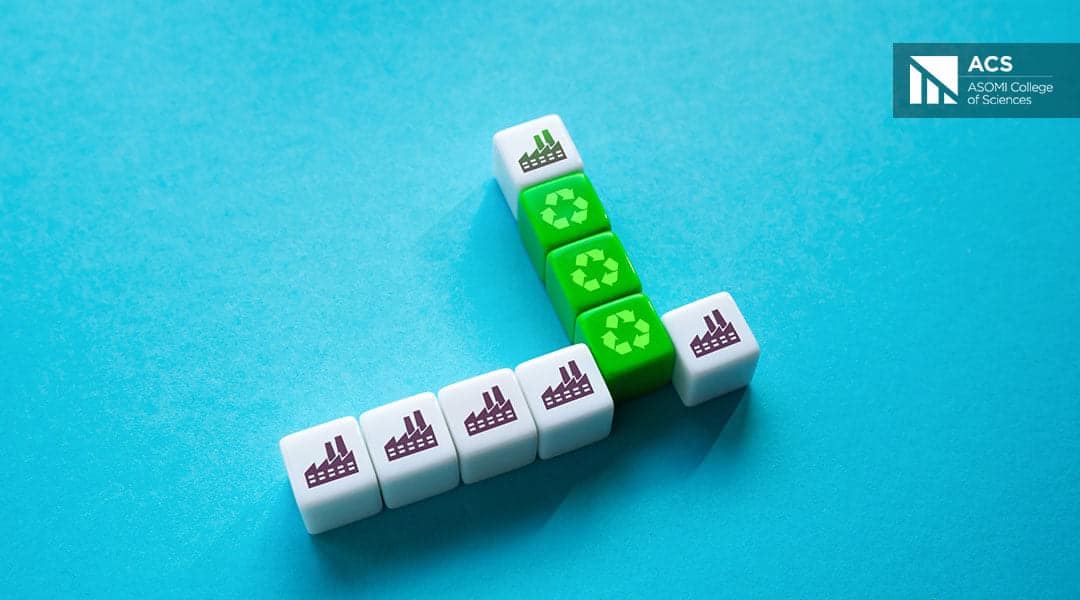Decoding the Art of Greenwashing
Greenwashing, a term that has permeated discussions on environmental responsibility, refers to the misleading presentation of a company or institution as environmentally friendly. In the context of universities, it involves creating an illusion of robust sustainability practices to enhance their public image. These are but a few reasons that we at ACS – ASOMI College of Sciences bring this article to you to handle this alarming tendency that unfortunately is growing in today’s society.
The Tactics Employed
Universities and colleges, in a bid to appear environmentally conscious, may employ a range of deceptive tactics:
- Token Gestures: Superficial, symbolic gestures that give the appearance of commitment without substantial action.
- Selective Highlighting: Emphasizing a single environmentally friendly initiative while neglecting other less eco-friendly practices.
- Ambiguous Terminology: Strategic use of vague or ambiguous terms that can be interpreted as green without making concrete commitments.
The Implications of Greenwashing in Academia
Undermining Genuine Efforts
Greenwashing not only misleads the public but also undermines the credibility of universities genuinely committed to sustainability. It creates scepticism, making it challenging for stakeholders to distinguish between authentic initiatives and mere window dressing.
Impact on Stakeholder Trust
The repercussions of greenwashing extend to eroding trust among students, faculty, and the wider community. When higher education institutions (HEIs) fail to deliver on promised environmental commitments, they risk damaging their relationships with stakeholders.
Identifying Greenwashing in Higher Education
Scrutinizing Claims
To discern greenwashing, stakeholders must critically evaluate the legitimacy of sustainability claims. This involves looking beyond surface-level initiatives and assessing the comprehensive nature of a university’s commitment to environmental stewardship.
Analysing Reporting Practices
Transparent reporting is a key indicator of a university’s sincerity. Stakeholders should scrutinize the completeness and clarity of sustainability reports, ensuring that they reflect the true extent of an institution’s green initiatives.

The Role of Vigilant Stakeholders
In the fight against greenwashing, stakeholders play a crucial role. By staying informed, questioning ambiguous claims, and demanding transparency, they contribute to fostering a culture of genuine environmental responsibility within the academic sphere.
That said, let’s underline, once more, why is the environmental issue so important and why it should be implemented also in the higher education sphere. As already said, in the ever-evolving landscape of global concerns, the urgency of addressing environmental issues has taken center stage.
The Interconnected Web of Environmental Challenges
Climate Change: A Looming Crisis
Climate change stands as a pervasive threat, casting a shadow over the future of our planet. The escalating frequency of extreme weather events, rising sea levels, and disruptions to ecosystems necessitate urgent and coordinated action. Understanding the nuances of climate change is crucial for devising effective strategies to mitigate its impact.
Biodiversity Decline: Unraveling the Tapestry of Life
The rapid loss of biodiversity is akin to unravelling the intricate tapestry of life on Earth. Issues about biodiversity go from its diminishment, to the collapse of ecosystems to the potential loss of invaluable genetic resources. Acknowledging the urgency of preserving biodiversity becomes imperative in safeguarding the delicate balance of our planet.
The Economic Imperative of Environmental Stewardship
Sustainable Practices: A Path to Economic Resilience
Contrary to the misconception that environmental responsibility is economically burdensome, adopting sustainable practices presents an opportunity for economic resilience. Embracing eco-friendly initiatives, from renewable energy adoption to waste reduction strategies, contributes to long-term cost savings and positions businesses for sustainable growth.
Consumer Demand for Eco-Conscious Choices
In an era where consumers are increasingly conscientious about their environmental impact, businesses that prioritize sustainability gain a competitive edge. The latter is often the reason for greenwashing not only at HEIs but at other businesses and institutions as well.
Conclusion
Understanding greenwashing is paramount in navigating the complex landscape of universities’ sustainability claims. By shedding light on these deceptive practices, we empower stakeholders to make informed decisions, fostering a collective commitment to authentic environmental stewardship in higher education. The environmental conservation is something out planet and society needs but it should be done genuinely, otherwise the consequences are going to be harsh for businesses and institutions involved in greenwashing. ACS – ASOMI College of Sciences is concerned with environmental initiatives and addresses any kind of none environmental friendly actions, including greenwashing.




